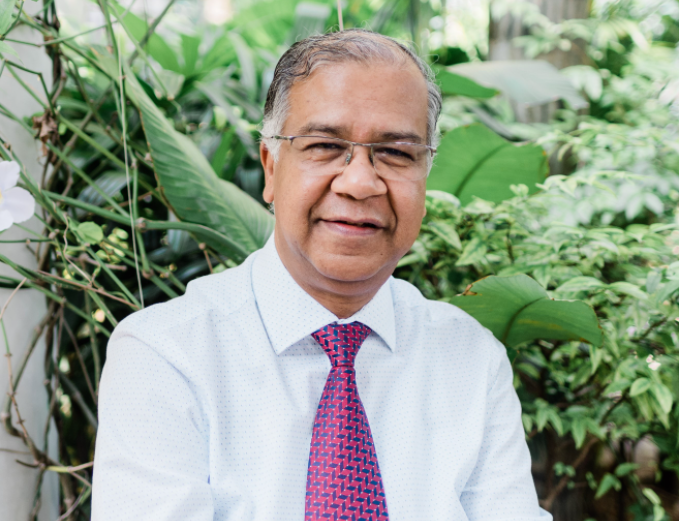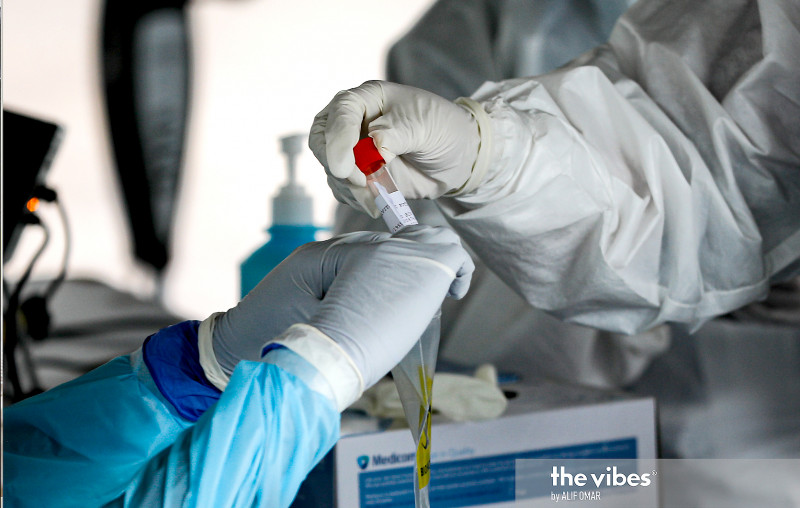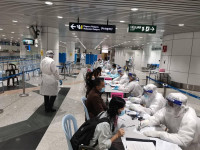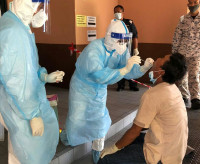KUALA LUMPUR – Top scientists around the world are pushing the panic button after researchers in South Asia isolated a newer variant of SARS-CoV-2, dubbed the Triple Mutant or Bengal strain.
When contacted, a scientist-researcher specialising in molecular virology confirmed that the isolation of the newer variant of the virus in South Asia will mean a tougher fight ahead to contain Covid-19 infections regionally and globally.
Speaking to The Vibes, Prof Sunil Kumar Lal of Monash University Malaysia said: “The Triple Mutant, scientifically known as B.1.618, is here. This is going to be a global problem, a kind of ‘Covid-19 tsunami’, and every country will have to deal with it.
“With the emergence of the Triple Mutant, Covid-19 infections in the Indian states of Bengal, Maharashtra and Chhattisgarh clearly indicate that the ‘process of virus evolution’ in all three regions is exclusive and mutually independent events.”
He said the Bengal strain does not have to “reach” Malaysia.
“Replicating viruses tend to mutate more with increased infections. That is why this is just not India’s problem, but a global burden to deal with.
“The virus blueprint is such that it changes easily. Hence, independent evolution of the virus in different countries will result in different variants emerging in different regions and countries.”

Giving an example, he said: “The virus did not ‘travel’ to Maharashtra from Bengal. Its detection in Maharashtra is an independent evolution of the virus and is not linked to the Bengal isolate. These are completely independent events, and the more you sequence the virus, the more variants you will find.”
Fighting a moving target
“It is clear that when the virus replicates in humans, it evolves to ‘double’ and ‘triple’ mutants. This phenomenon will be a global problem because this is the very ‘blueprint’ of RNA viruses like SARS-CoV-2. The virus will keep mutating, and we will have to prepare ourselves to wage war against a ‘moving target’,” said Sunil Kumar.
As India grapples with a catastrophic second wave of Covid-19 infections currently, Indian research sleuths are tracking after the new Third Mutant. Researchers are gravely concerned about its highly transmissible nature and ability to evade immune barriers.
On April 21, Vinod Scaria, a scientist at the Council of Scientific and Industrial Research’s Institute of Genomic and Integrative Biology (CSIR-IGIB) in New Delhi, posted on Twitter about the discovery of the new mutant coronavirus, B.1.618, in West Bengal.
Scaria’s announcement came on the heels of the discovery earlier of a widespread new Double Mutant variant, B.1.617. The new Triple Mutant is a replication of the Double Mutant of the coronavirus.
B.1.618 - a new lineage of SARS-CoV-2 predominnatly found in India and characterized by a distinct set of genetic variants including E484K , a major immune escape variant. pic.twitter.com/dtfQJp2S2B
— Vinod Scaria (@vinodscaria) April 20, 2021
Simply put, all viruses have the ability to alter their structure based on the degree of transmissions. In other words, the more a virus spreads, the faster it mutates.
Constantly mutating since Wuhan
Beginning in Wuhan in 2019, the coronavirus spread like wildfire across the globe within months, and with that speed in transmission, researchers spotted new variants in the UK (B.1.1.7), Brazil (B.1.1.28) and South Africa (B.1.351).
While viruses constantly mutate or make copies of themselves in order to spread and thrive, they also make minuscule genetic changes within themselves. Most of these changes can be “inconsequential”, and even harmful to their own survival. However, some variants can make the virus more infectious and threatening to their hosts: humans.
For scientists across the world, the Bengal strain is a major cause for concern as this variant carries in it the E484K trait of the South African and Brazil variants.
Sreedhar Chinnaswamy of the National Institute of Biomedical Genomics for Infectious and Inflammatory Diseases was quoted by Indian media as saying: “The E484K trait is known to be an ‘immune escape variant’, which means that previously raised antibodies against a virus without this mutation may be less effective in inhibiting the virus from infecting and causing disease in humans. This includes antibodies raised from vaccines.”

And, this means one may not be safe from this variant if he or she has previously been infected by another strain of the virus, or even after having been fully vaccinated.
Sunil Kumar said: “There is new experimental data available on how the new variants are bypassing the vaccine-based immune response when tested against a vaccinated Covid-19-recovered patient’s immune plasma. These antibodies were derived from plasma of convalescent Covid-19 patients and sera from vaccinated individuals.
“These new discoveries suggest that SARS-CoV-2 may escape neutralising antibody responses, which has important implications for efforts to contain this pandemic.
“Now, the world needs to be aware of the emergence of Triple Mutants of the Covid-19 virus. As these viruses spread (replicate) more, there is a greater chance for Triple Mutants to emerge, and they can be more infective and highly pathogenic.”
Third Mutant can be missed during tests
Sunil Kumar pointed out that with the emergence of the Third Mutant, there will be issues pertaining to Covid-19 testing. He said the Third Mutant can be “missed” during diagnostic procedures.
“Most RT-PCR tests use a double gene detection protocol. So, the chances of missing the variants are minimal. However, many a time, the RT-PCR tests can miss a positive case, and this is probably due to the timing of the test.
“Seven to eight days after infection, the test can return negative because the virus may not show up in detectable amounts in a nasal or throat swab, because it may have already internalised in the patient and has moved further into the nasal passage.”
He said some vaccines will be easy to change and adapt “really quick” as and when the mutations happen, but for some, it will be more difficult to alter their make-up to face the mutant strain.
“The mRNA vaccines are the easiest and fastest in this respect. This difference in technologies may become the next big game-changer in vaccine development.” – The Vibes, April 28, 2021





.jpg)





















